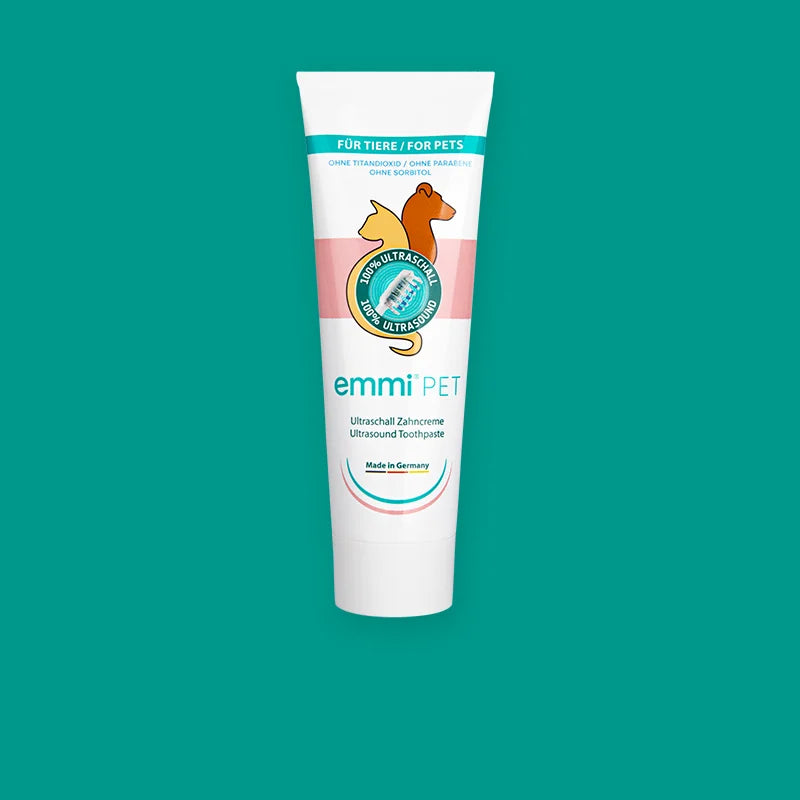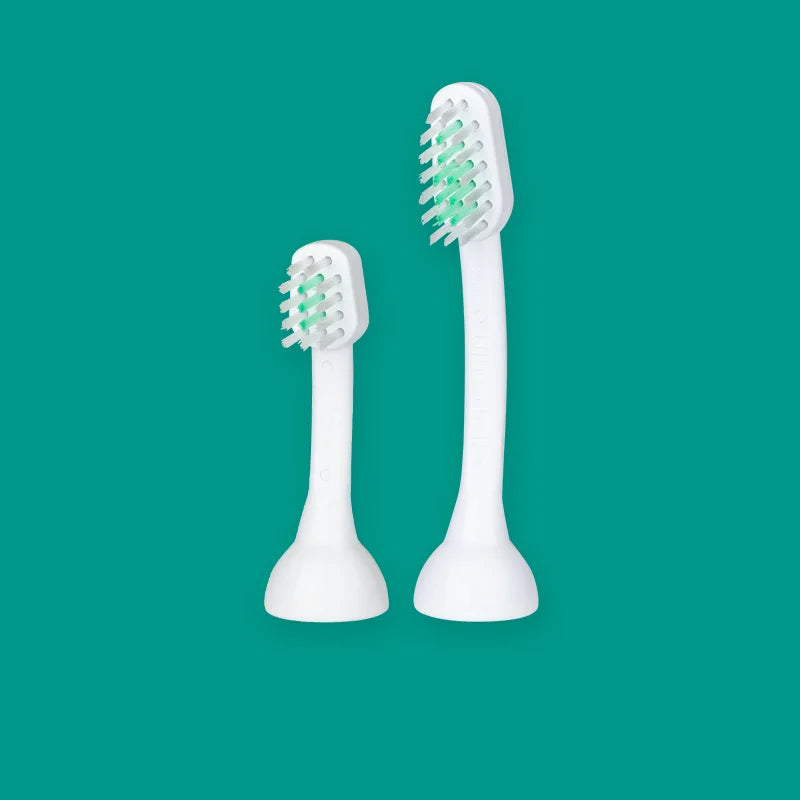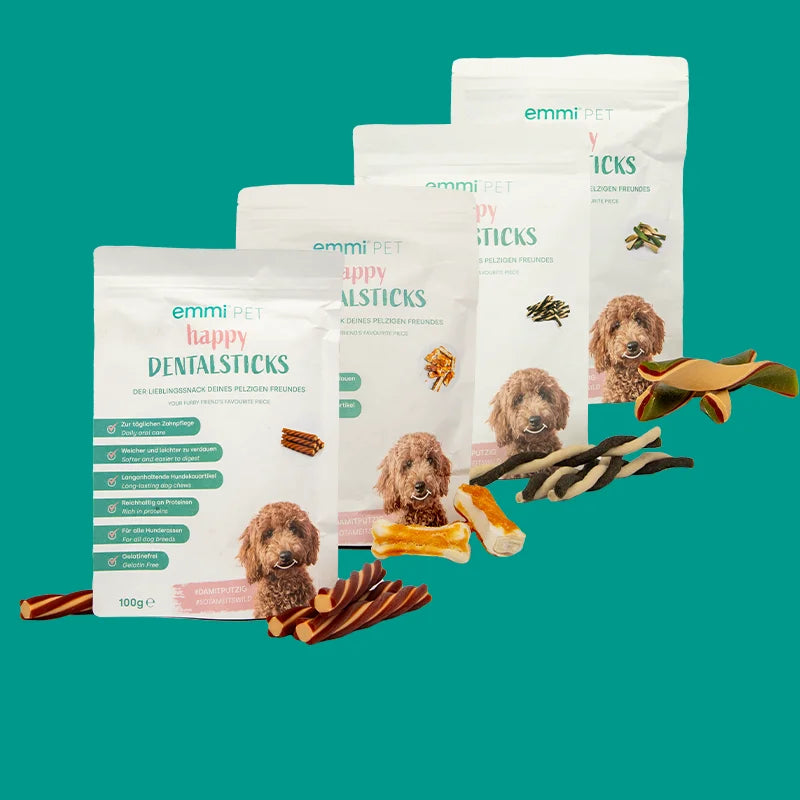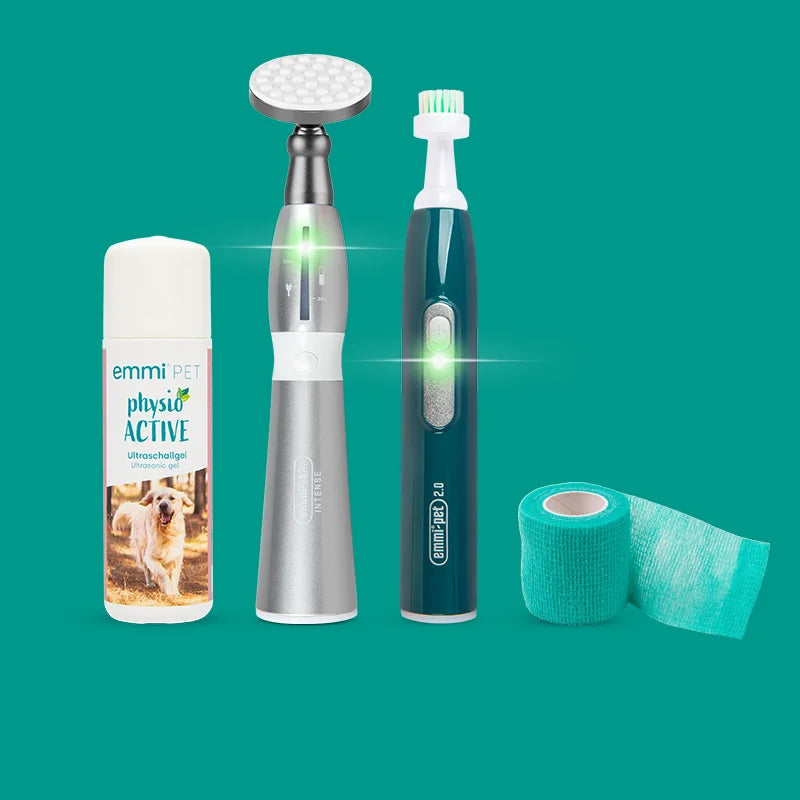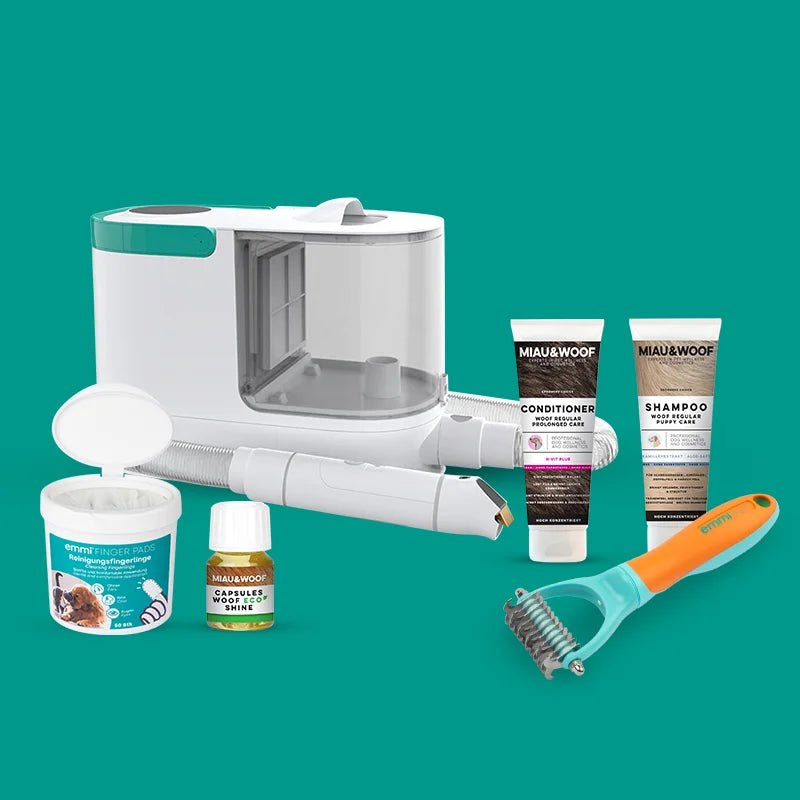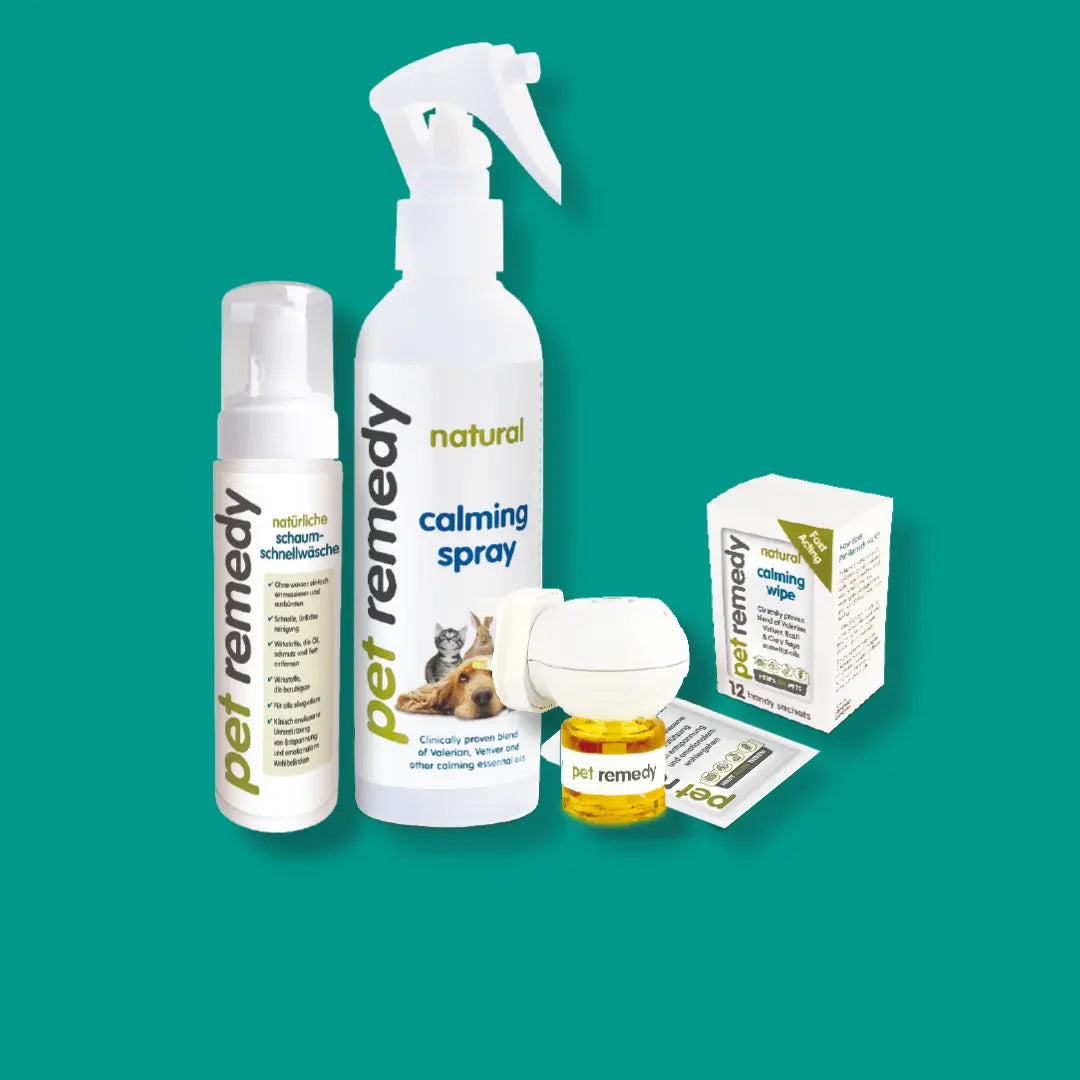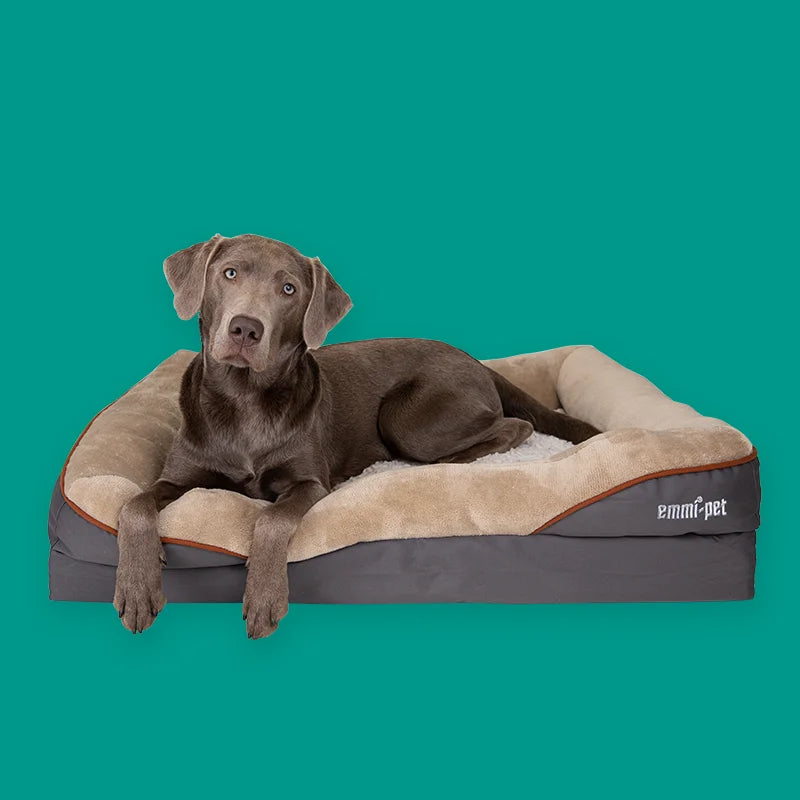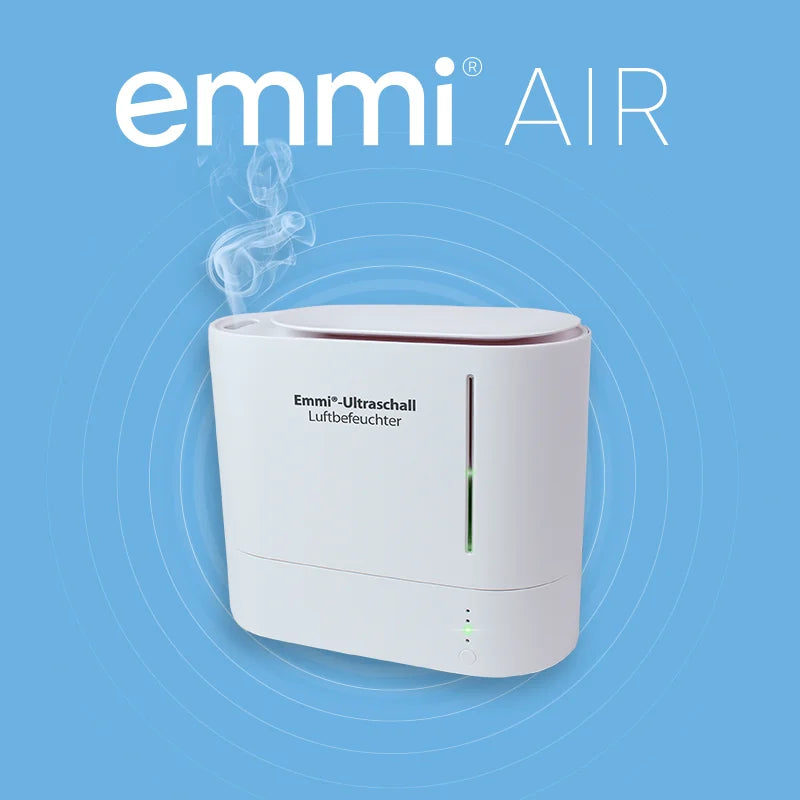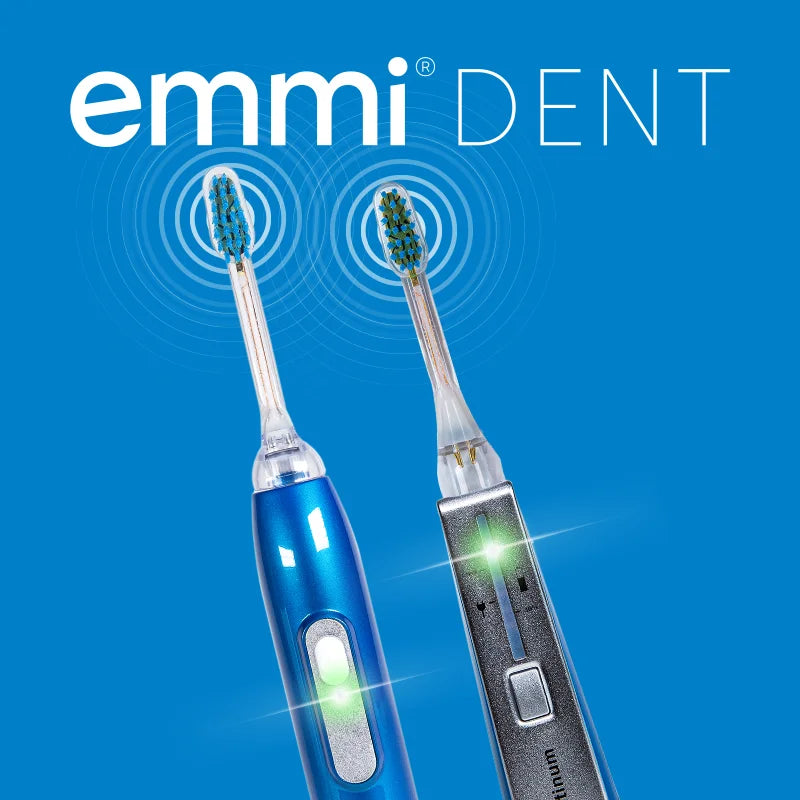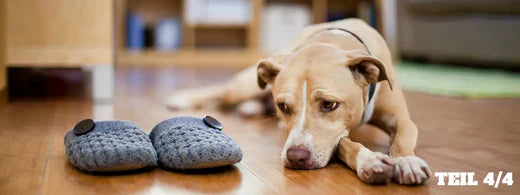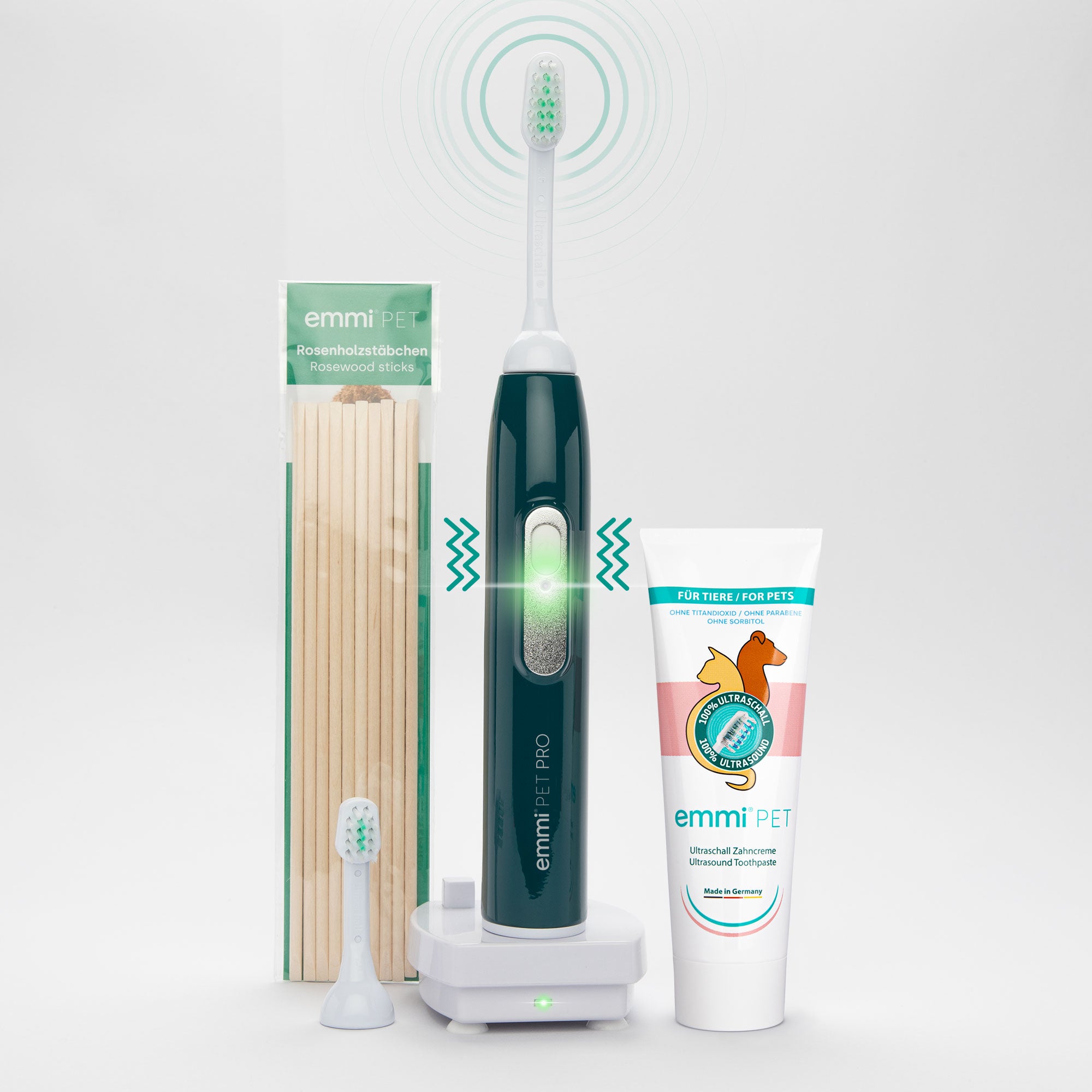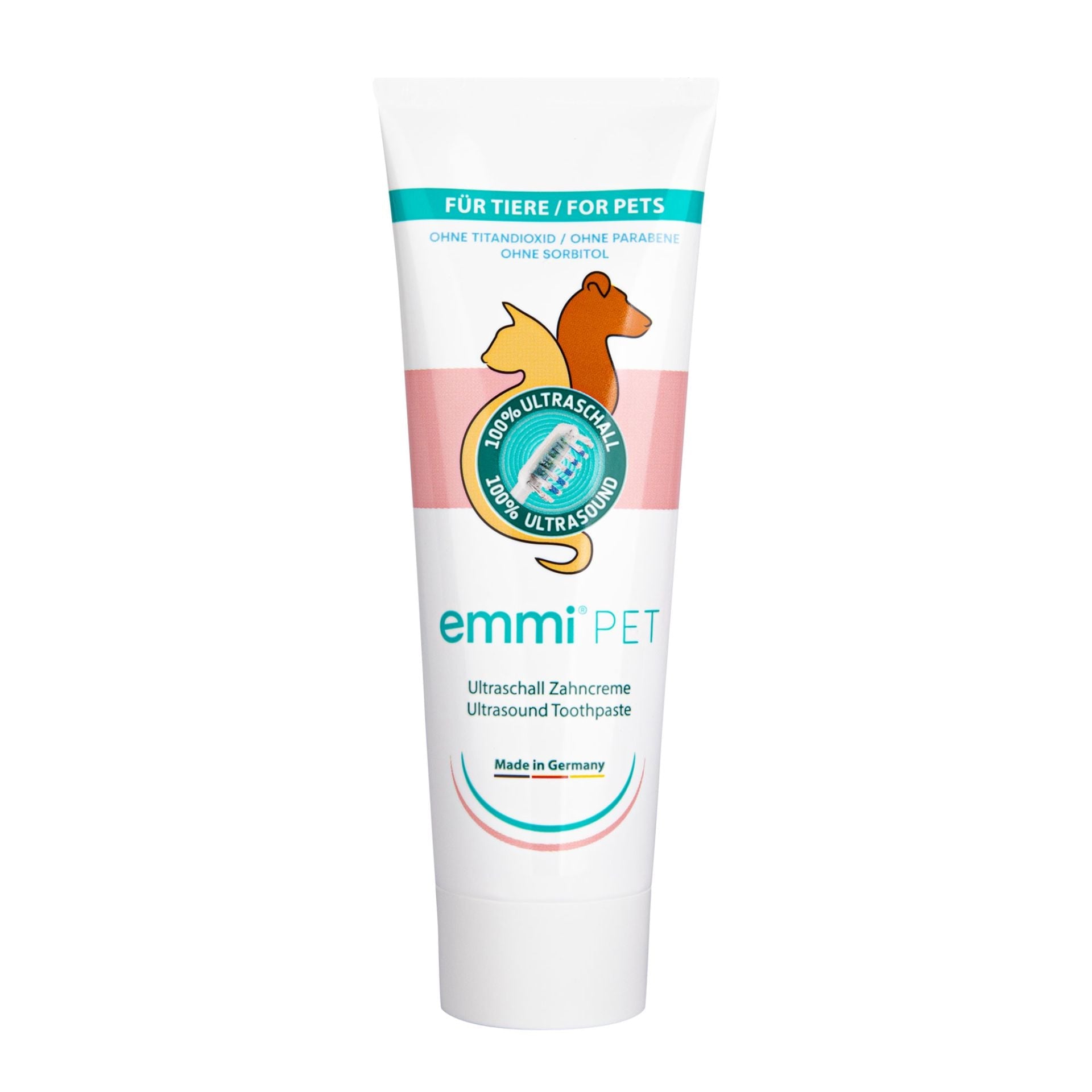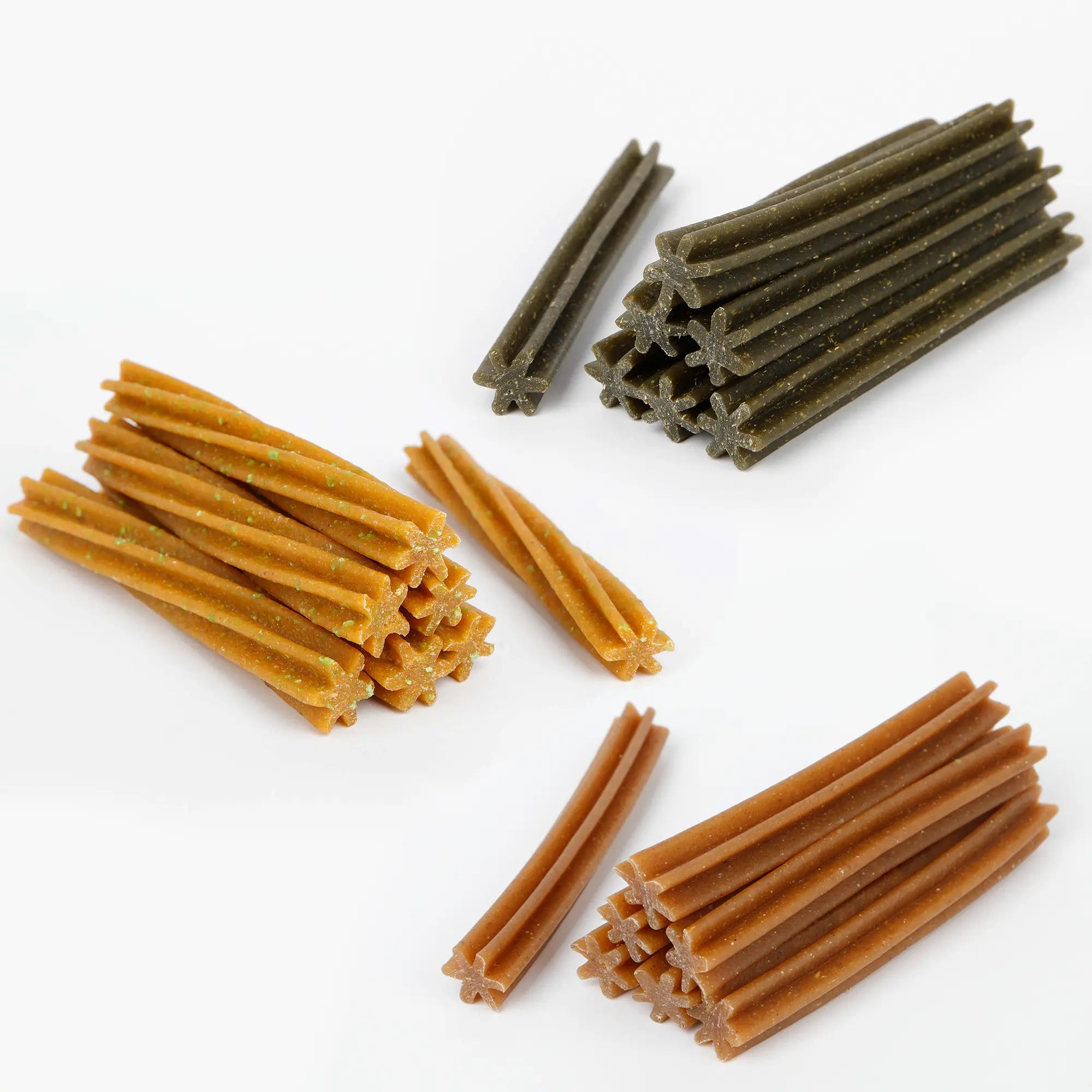Poor dental hygiene in dogs and its consequences
Regular checkups of your dog's teeth are essential. Misaligned teeth or excessively stubborn baby teeth, as well as other developmental disorders in the dog's dentition, lead to serious problems in adulthood. If your dog suffers from growth disorders, their teeth can also be affected. Small breeds, in particular, are prone to dental problems. In today's blog post, we explain why you should definitely not skip routine checkups with your veterinarian during puppyhood and why dental care is also essential for dogs.
Dental diseases resulting from poor dental hygiene in dogs
Plaque and heavy tartar aren't the only clear signs of poor dental hygiene in dogs. The sooner you address this issue, the greater the likelihood that your dog will avoid major dental problems. Regular and proper dental care can also largely minimize subsequent damage. Untreated tartar often leads to tooth loss.
This is accompanied by various accompanying symptoms. Bleeding gums, changes in the jaw and neck area, excessive tearing, or a blocked nose on one side of the mouth can be signs of a damaged tooth. A strong odor from the mouth, increased chewing on furniture or other everyday objects, chewing on one side, or constantly rubbing the muzzle against the sofa can also indicate an advanced dental problem or severe inflammation in the jaw.
If you neglect your dog's teeth, your pet may lose teeth when they shouldn't. Symptoms of unhealthy teeth range from bad breath to inflammation in vital organs like the heart, liver, and kidneys.
Prevent diseases of the dog's teeth
The ideal preventative measure is to ensure your four-legged friend has a balanced and, above all, sugar-free diet. Regular dental care and oral hygiene should not be neglected. With our emmi®-dent ultrasonic toothbrush, cleaning is quick and easy.
Avoid various chew aids or chew toys, but instead ensure that your dog chews for a long time. This stimulates saliva flow. Saliva also cleans the teeth. Avoid sugary treats at all costs and brush your dog's teeth at least every two or three days. While chewing is extremely important for teeth cleaning and promotes general health, caution should be exercised with sugary foods.
Regular chewing isn't always possible, especially for older dogs. For this reason, you should be cautious with so-called "chew aids." These can cause lasting damage to your dog's teeth. Regularly cleaning their teeth with our emmi®-dent ultrasonic toothbrush is much more effective at this age.
Your dog's dental hygiene is extremely important. Regularly practiced, it will not only save you a lot of grief and suffering as your dog ages, but also a tremendous amount of money.

